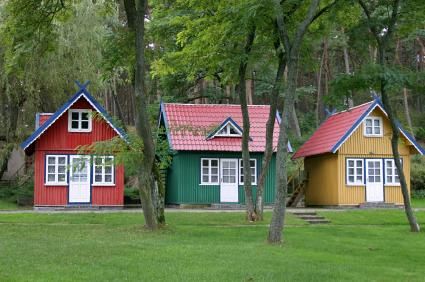
Do you ever feel entirely engulfed by... things? It's easy to become overwhelmed with clutter. Somewhere between Dirty Clothes Mountain and the Leaning Tower of Books, someone has figured out a way to solve the problem. For them, minimalism is the key to decluttering their lives.
Minimalism entails doing more with less. People who follow this way of life begin by getting rid of things they no longer require. They soon discover that their pile of belongings has diminished. Then they survive on the bare essentials. They don't always require as much living space as they once did. That's when a lot of minimalists decide to move into a tiny dwelling.
Well, there isn't a precise definition. However, most people agree that any home under 400 square feet is considered small. In 2018, the average size of an American home was around 2,400 square feet.
It necessitates some architectural ingenuity. Tiny house builders are notorious for their ingenuity when it comes to locating storage areas. You'll find closets and cabinets in unexpected places in a little house. It also helps since most tiny house bedrooms are lofts. There's still enough room below for the kitchen, bathroom, and living room.
A little abode can only hold so much. That is one of the main attractions for many individuals. It forces people to purge their belongings. They only maintain things that are useful or have sentimental worth.
There are numerous advantages. Tiny dwellings are not only more economical, but they also encourage a simple lifestyle. The majority of tiny dwellings are under $40,000 in price. That's a lot less than the $310,400 median price of a new home in America in 2019. Tiny house owners pay off their mortgages in a fraction of the time it takes larger home owners.
Tiny dwellings are also more environmentally friendly. They consume significantly less electricity and are simpler to heat and cool. Compost toilets are also included in many compact houses. Instead of flushing trash down the toilet or into the septic tank, these toilets turn it into compost that can be used. This significantly reduces the amount of water used.
Another significant advantage of tiny dwellings is that many of them can be moved. Are you sick of your city? It's no problem! You may pick up and move to a more rural area with a little house on wheels. You may even relocate your home closer to the sea, the mountains, or the desert! It is much easier to move around when you live in a small space.
While cleaning takes less time in a little dwelling, some tiny home owners say that even a small mess appears much larger. It can be tough to find solitude or alone time if you live with other people. Furthermore, zoning laws in some areas make it difficult to find a suitable location for a tiny house.
In a small residence, entertaining is also tough. There isn't much room for people to move around, and most tiny dwellings can only fit a few people comfortably. Some tiny house owners tackle this problem by constructing outdoor leisure areas such as patios or decks.
Do you want to live in that little house? It would necessitate a complete lifestyle adjustment for many people. However, some argue that minimalism is worthwhile. They feel more organized and less anxious after clearing away the clutter and moving to a smaller home. Is that something you'd be interested in? The tiny house lifestyle might be right for you!
Views: 0